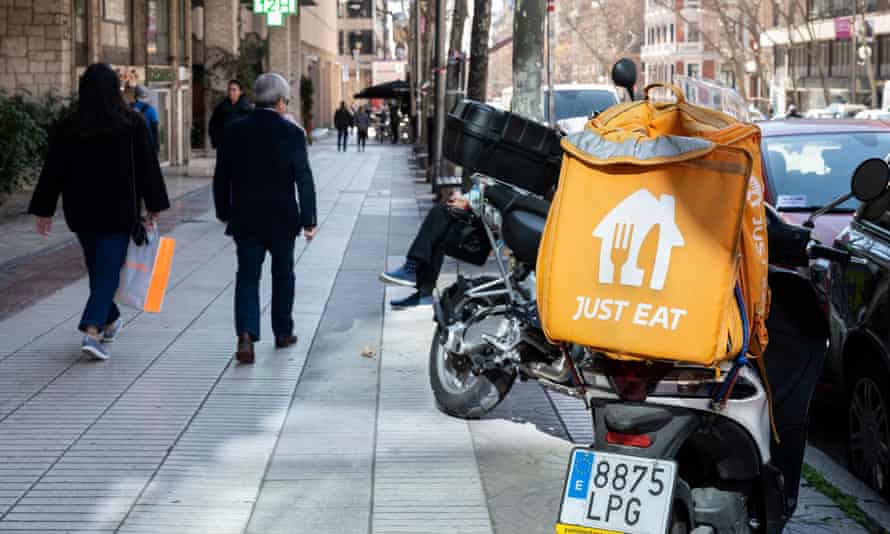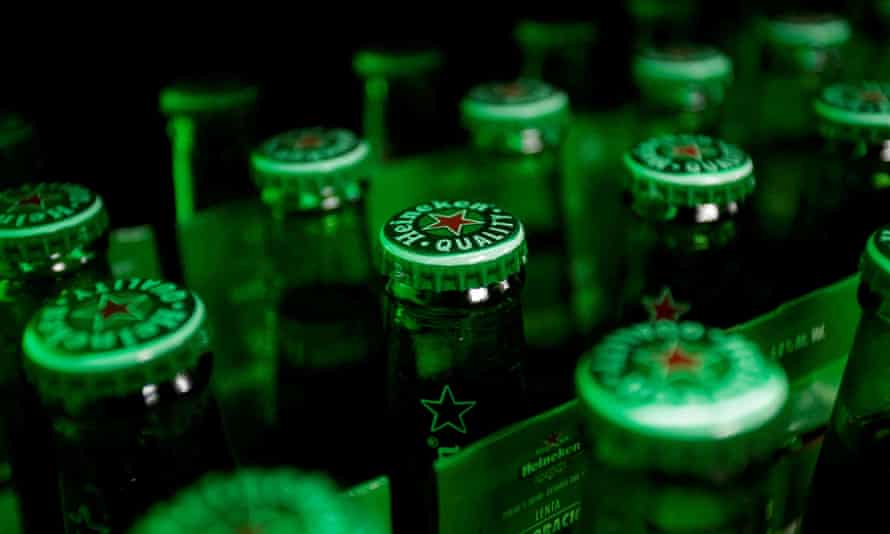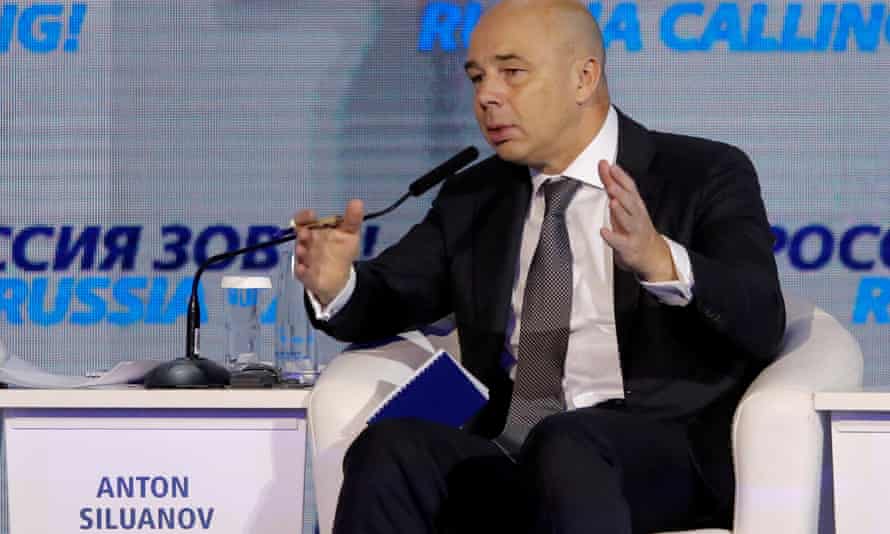The UK Treasury has told me that there will be British representation at all G20 meetings: some will attended by the chancellor, and other meetings by another British official. He said this is not unusual, as Rishi Sunak is not able to attend all meetings himself.
Western nations are preparing to stage coordinated walkouts and other diplomatic snubs in protest against Russia’s invasion of Ukraine at a meeting of G20 finance ministers in Washington.
The US treasury secretary, Janet Yellen, plans to avoid G20 sessions attended by Russian officials on the sidelines of International Monetary Fund and World Bank meetings on Wednesday. The UK chancellor, Rishi Sunak, also will not attend certain G20 sessions, a British government source said, as reported earlier.
However, Yellen will attend an opening session on the Ukraine war regardless of Russian participation, a US treasury official said.
While some in western capitals argue that Russia’s actions should mean it is excluded from global meetings altogether, that is not a view shared by others in the G20, including notably China and Indonesia, which is chairing the group this year.
Gazprombank demands $300m repayment from London-listed gold miner Petropavlovsk
The Russian gold producer Petropavlovsk, once one of the biggest gold producers listed in London, has been plunged further into turmoil as its main lender Gazprombank demanded repayment of almost $300m of loans.
Gazprombank, which has been sanctioned and its assets frozen by the UK government, is demanding immediate repayment of $201m of loans, and repayment of a $87m revolving credit facility by 26 April. However, Petropavlovsk had already warned that sanctions imposed on Russia after its invasion of Ukraine prohibited it from making the repayments.
The gold miner said in a statement to the London Stock Exchange today:
The company is considering the implications of these notices with its advisers.
Petropavlovsk shares crashed 28% to a record low of 1.53p in early trading, and are now trading 15% lower. Last month, the Russian billionaire Sergey Sudarikov, who part-owns the sanction-hit Credit Bank of Moscow, bought a 29% stake in Petropavlovsk from its biggest shareholder, Konstantin Strukov, who owns the Russian gold miner UGC.
Last week, Petropavlovsk said it was considering putting itself up for sale “as soon as practically possible” because it would be “very challenging” to refinance a $304m bond, which is due to mature in November. It warned that investors might be wiped out by a sale.
The company has been hit hard by western sanctions on Russia (even though it is not on the sanctions list itself), and said then:
The group has limited cash reserves outside Russia. There are legal restrictions in place in Russia which limit the group’s ability to transfer cash out of Russia.
The firm said last month that restrictions on buying and selling gold in Russia might make it hard to find an alternative buyer for its output. Gazprombank is one of Petropavlovsk’s main customers and buys all of its gold.
Consumer stocks and banks are among the biggest risers in the UK and the rest of Europe today, while miners have been hit by downbeat results from Rio Tinto.
The Euro Stoxx 600 rose 0.4%, with Danone the top riser, up 7.6%, after positive results and rumours that the French dairy firm Lactalis could bid for it. Heineken rose more than 4% after reporting a surge in beer sales as bars and restaurants reopened in Europe following Covid lockdowns.
Europe’s main stock indices are trading between 0.2% (Germany’s Dax) and 0.4% (France’s CAC) higher, while the UK’s FTSE 100 index has gained 18 points, or 0.2%, to 7,619.
In London, consumer stocks such as Kingfisher, Reckitt Benckiser, Unilever and British American Tobacco are rising as these stocks are seen as good defensive staples amid the war in Ukraine.
Lloyds Banking Group was also among the top FTSE 100 risers and the banking index rose 1.4%, as the yield on the UK’s 10-year government bond climbed above 2% for the first time since late 2015.
Just Eat considers selling Grubhub arm after drop in orders
Just Eat Takeaway is considering selling off its Grubhub arm, after reporting a decline in orders compared with bumper levels during Covid lockdowns.
The takeaway delivery specialist said orders dropped by 1% to 264.2m in the first three months of 2022 as it struggled against pandemic-boosted levels from last year. As a result, it lowered its transaction value and earnings forecasts for the year.
The Netherlands-based company agreed to buy the US-based app Grubhub for $7.3bn (£5.8bn) in June 2020 in a deal completed last year that created the world’s largest food delivery service outside China.

Heineken sells more beer after bars reopen
Heineken, the world’s second-biggest brewer, has sold more beer than expected thanks to a surge in demand from Europe, where bars and restaurants reopened from Covid lockdowns in recent months.
The Dutch company said revenues climbed 35% to almost €7bn in the first three months of the year, compared with the same period last year. Beer volumes rose 5.2% on a like-for-like basis from a year earlier, above analysts’ expectations of a 3.5% increase. They were 2.8% ahead of 2019.
Premium beer volumes grew by 6.3%, led by Heineken, which was up nearly 13%. Growth was mainly driven by Brazil, China, the Netherlands, Spain, Ireland, Italy, the UK, Portugal, Nigeria, and the United Arab Emirates.
Heineken shares rose 3.4% on the news.

Rio Tinto flags risks from inflation and prolonged war
The Anglo-Australian mining giant Rio Tinto has reported lower-than-expected iron ore shipments in the first quarter and flagged risks from sustained high inflation, new Covid lockdowns in China and a prolonged Russia-Ukraine war.
The world’s biggest iron ore producer shipped 71.5 million tonnes of iron ore, which is used to make steel, in the three months to 31 March, compared with 77.8 million tonnes a year earlier and analysts’ estimates of 76 million tonnes.
Labour shortages and supply chain snags hampered the company’s efforts to ramp up its Pilbara operations in Western Australia in the first three months of the year.
Rio Tinto shares fell 2.2%, making it the biggest loser on the FTSE 100 this morning. Other miners, Fresnillo and Anglo American, were also among the biggest fallers.
Rio Tinto chief executive Jakob Stausholm said:
Production in the first quarter was challenging as expected, re-emphasising a need to lift our operational performance.
Turning to the outlook, he said:
Economic growth and commodity demand started positively this year as the world continues to recover from the pandemic downturn. However, market expectations have been revised downwards amidst sustained high inflation, the outbreak of the Russia-Ukraine war, and a resurgence of Covid-19 lockdowns in China. Further downside risks include a prolonged war and other geopolitical tensions, extended labour and supply shortages, and monetary policy adjustments to curb inflation.
In March, Rio Tinto became the first major mining company to announce it was severing all ties with Russian businesses. It owned an 80% stake in Queensland Alumina in a joint venture with Russia’s Rusal, the world’s second-largest aluminium producer.
European stocks have opened cautiously higher.
Germany’s Dax rose 0.1%, France’s CAC and Italy’s FTSE MiB added 0.3% and Spain’s Ibex edged 0.2%, while the UK’s FTSE 100 index was up 0.1% at 7,608.
Sunak to skip some G20 meetings, keep pressure on Russia
Britain’s chancellor of the exchequer, Rishi Sunak, will only attend some G20 meetings in Washington this week, Reuters is reporting, citing a government source, after US officials said they would avoid meetings with Russian officials.
US officials said on Monday that Treasury Secretary Janet Yellen would skip some meetings of finance ministers from the G20 group of advanced and emerging economies if Russian officials were present.
Sunak will not attend all G20 meetings either. A government source told Reuters:
As per the US, the chancellor will attend the core G20 sessions… and will continue working with our allies to call out Russian aggression, and push for stronger coordinated action to punish Russia and support Ukraine.
Russia’s finance minister, Anton Siluanov, will lead Russia’s delegation to the sessions, which take place on the sidelines of the twice-yearly meetings of the IMF and World Bank in Washington.

Introduction: German producer prices at record high, IMF/World Bank meetings under way
Good morning, and welcome to our rolling coverage of business, the world economy and the financial markets.
In Germany, factory gate prices jumped 30.9% in the year to March, the biggest increase since records started in 1949, according to the Federal Statistics Office. This reflects the impact of the war in Ukraine for the first time, with surging energy costs the main culprit. The worry is that increases in producer prices will feed through into consumer prices and push inflation even higher.
Netflix shares crashed 25% last night after the US streaming giant said it had lost subscribers for the first time in 10 years at the start of the year, and expects to lose even more in the spring.
After gains on Wall Street on Tuesday, with the Nasdaq rising 2.15% and the Dow Jones up 1.45%, Asian shares are mostly higher in choppy trading, apart from the Shanghai composite, which fell 1%. Japan’s Nikkei rose 0.86%, Hong Hong’s Hang Seng dipped 0.47% and the Singapore exchange finished 0.9% higher.
China’s central bank kept its benchmark lending rates unchanged but announced some measures to help people and companies affected by Covid. Iris Pang, chief economist for Greater China at ING, says:
Most of the measures mentioned are window guidance for banks to be flexible in lending to individuals and companies that are affected temporarily by lockdowns and credit issues, but which are willing to repay debts when the lockdowns are released. The outcome depends on the banks’ reaction to the central bank’s suggestions. The measures also suggest that the monetary policy response will remain modest compared to fiscal stimulus.
European stock markets were in the red yesterday, as Russia launched the ‘second phase’ of the war in Eastern Ukraine. Futures point to a higher open today, but the risks remain tilted to the downside.
Oil prices have rebounded amid concerns about tighter supplies from Russia and Libya. Yesterday, both Brent crude and US light crude lost more than 5% after the International Monetary Fund slashed its forecast for global growth because of the war in Uraine. Brent crude, the global benchmark, is nearly $1 higher at $108.18 a barrel at the moment, while US light crude is trading at $103.02 a barrel.
Also coming up
The spring meetings held by the International Monetary Fund and World Bank are under way in Washington, with speeches this afternoon by the IMF managing director Kristalina Georgieva on the global policy agenda, followed by the World Bank president David Malpass.
The Agenda
- IMF/World Bank spring meetings in Washington
- 10am BST: Eurozone trade and industrial production for February
- 1.30pm BST: Canada inflation for March (forecast: 6.1%)
- 1.30pm BST IMF head Kristalina Georgieva speaks
- 2.15pm BST: World Bank president David Malpass speaks
- 3pm BST: US Home sales for March
Stay connected with us on social media platform for instant update click here to join our Twitter, & Facebook
We are now on Telegram. Click here to join our channel (@TechiUpdate) and stay updated with the latest Technology headlines.
For all the latest Business News Click Here
